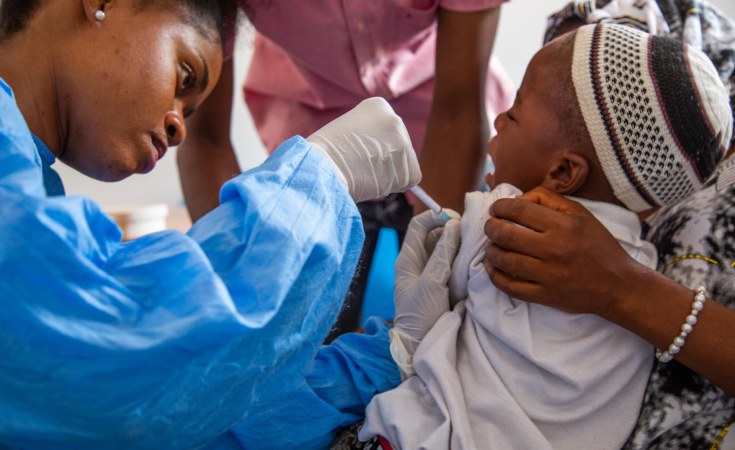Good morning, good afternoon and good evening,
Today is a great day for health, a great day for science, and a great day for vaccines.
I offer my warmest congratulations to Dr Katalin Kariko and Dr Drew Weissman, who today won the Nobel Prize in Physiology or Medicine for their work in developing the technology that led to mRNA vaccines against COVID-19.
As they have for so many other diseases, safe and effective vaccines against COVID-19 played a vital role in bringing the pandemic under control.
And safe and effective vaccines are also giving us new hope of bringing one of the oldest diseases known to humanity under control - malaria.
Almost exactly two years ago, WHO recommended the broad use of the world's first malaria vaccine, called RTS,S.
Today, it gives me great pleasure to announce that WHO is recommending a second vaccine, called R21/Matrix-M, to prevent malaria in children at risk of the disease.
This recommendation is based on advice from two expert groups: the Strategic Advisory Group of Experts on Immunization, or SAGE, and the Malaria Policy Advisory Group, or MPAG.
Both groups reviewed evidence from trials of the R21 vaccine, which showed that in areas with seasonal transmission, it reduced symptomatic cases of malaria by 75% in the 12 months following a three-dose series of the vaccine.
A fourth dose, given a year after the third, was shown to maintain protection.
This efficacy is similar to the RTS,S vaccine when given seasonally.
The trials showed the vaccine to be safe, and safety monitoring will continue as the vaccine is rolled out.
At a cost of between 2 and 4 US dollars a dose, it is comparable with other recommended malaria interventions and other childhood vaccines.
As a malaria researcher, I used to dream of the day when we would have a safe and effective vaccine against malaria. Now, we have two.
Since 2000, malaria deaths have fallen by more than half, and we have succeeded in eliminating malaria from many parts of the world.
But globally, progress has stalled.
Nearly half the world's population remains at risk of malaria. In 2021, there were an estimated 247 million cases of malaria, and 619,000 deaths.
95% of cases and deaths are in Africa, and most deaths are in children under 5.
Demand for the RTS,S vaccine far exceeds supply, so the R21 vaccine is a vital additional tool to protect more children faster, and to bring us closer to our vision of a malaria-free world.
WHO is now reviewing the vaccine for prequalification, which is WHO's stamp of approval and will enable Gavi and UNICEF to buy the vaccine from the manufacturers.
At least 28 countries in Africa plan to introduce a WHO-recommended malaria vaccine as part of their national immunization programmes.
The RTS,S vaccine will be rolled out in some African countries early next year, and the R21 vaccine is expected to become available to countries by the middle of next year.
R21 was not the only vaccine that SAGE reviewed at its meeting last week.
It also recommended a new vaccine against dengue, called Qdenga, for children aged 6 to 16 years living in areas where dengue is a significant public health problem.
SAGE also recommended a new vaccine against meningitis, called Men5CV, which has been shown to protect against five species of bacteria that cause the disease.
And it recommended that for most COVID-19 vaccines, a single dose is sufficient for primary immunization, given most people have had at least one prior infection.
In addition, SAGE issued advice on the use of vaccines to prevent antimicrobial resistance, as well as for polio, cholera, mumps and smallpox.
To say more, I'm delighted to welcome the Chair of SAGE, Dr Hanna Nohynek, the Chief Physician at the Department of Health Security at the Finnish Institute for Health and Welfare.
Dr Nohynek, thank you for your leadership at this exciting time for vaccines and the fight against malaria. Over to you.


